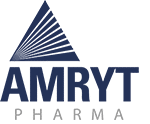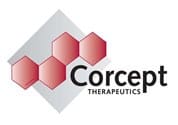News Articles February 2022
Written on 04 February 2022.
PNA Spotlight: Dr. William Couldwell

This month the PNA Spotlight focuses on William Couldwell, MD, PhD, who serves as Professor and Chair of the Department of Neurosurgery at the University of Utah. He is also a member of the PNA’s Scientific Advisory Panel. He studied at the University of British Columbia in Vancouver and at Dalhousie University in Halifax, Nova Scotia, majoring in physical chemistry and biology. Dr. Couldwell attended medical school at McGill University in Montreal. He did internship in surgery at the University of Southern California and completed a neurosurgical residency there in 1989. He served as a research fellow in neuroimmunology at the Montreal Neurological Institute and Hospital and research fellow in the neurosurgical service in Lausanne, Switzerland. He returned to U-S-C as an assistant professor of neurological surgery in 1991, where he stayed for four years. Later he became professor and chairman of the Department of Neurological Surgery at New York Medical College, as well as program director of neurosurgical residency in 1997. In 2001 he became professor and chairman of the Department of Neurosurgery at the University of Utah. Dr. Couldwell was kind enough to answer some questions from the PNA. His answers follow.
• What inspired you to choose your career path?
I attended medical school at McGill University in Montreal. Professor Jules Hardy was a faculty member and was one of my mentors. He was an inspirational figure. I then trained in neurosurgery with Martin Weiss in Los Angeles, a fantastic surgeon and educator. Both of these mentors were pituitary surgeons and fostered my interest in pituitary tumor surgery.
• What is the primary focus of your work/research?
We are actively pursuing studies in novel mechanisms of growth arrest in pituitary tumors and meningioma. I am also interested in optimizing outcomes following surgery for these tumors with novel approaches
• What do you consider to be the future of your field?
Specific medical therapy targeting pathways necessary for growth of these tumors.
• What should patients know about your field/what deserves more recognition/awareness?
While most pituitary tumors are benign and eminently treatable, a minority are very challenging to manage despite being labelled as benign tumors. Examples include recurrent Cushing’s disease and acromegaly, diseases which have significant morbidity and can shorten life expectancy.
• What would you like to convey about yourself to your patients?
We have a multidisciplinary team approach to the management of pituitary tumors and have significant clinical experience.
• Why did you get involved with the PNA; what is the extent of your involvement?
I have known (PNA Chairman emeritus) Robert Knutzen for many years and have appreciated his relentless efforts in promoting the importance of pituitary issues, including multimodal management of pituitary tumors. He has been a champion for improving care in this domain.
PNA Highlights April 2023

The greatest of follies is to sacrifice health for any other kind of happiness.
-Arthur Schopenhauer
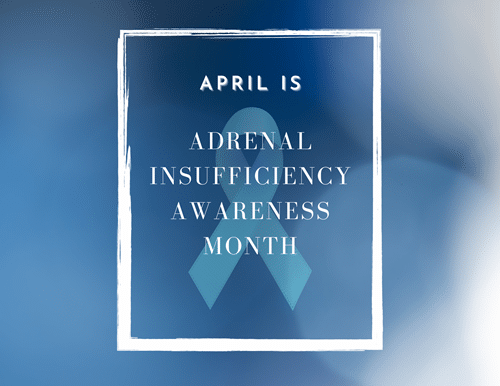
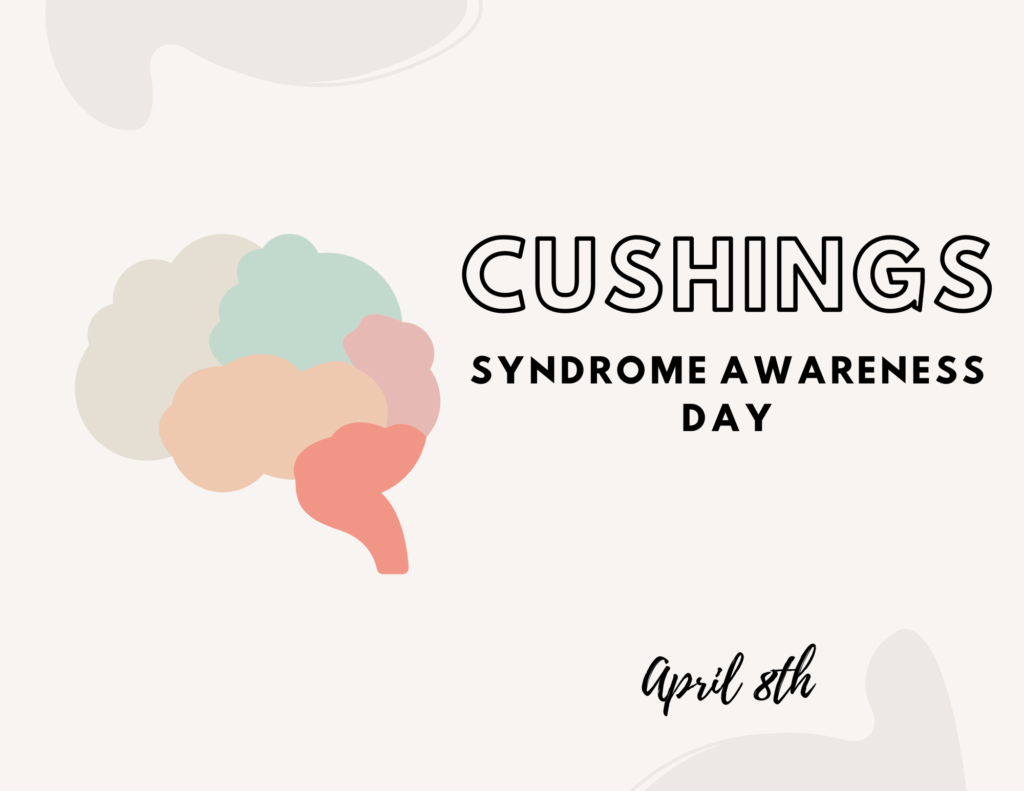
PNA Spotlight: Dr. Adriana G. Ioachimescu
This month the PNA Spotlight focuses on Adriana G. Ioachimescu, MD, PhD, FACE Professor of Medicine (Division of Endocrinology and Molecular Medicine) and Neurosurgery at the Medical College of Wisconsin, a lifetime professional member of the PNA.
Dr. Ioachimescu was a Professor of Medicine in Endocrinology and Neurosurgery at the Emory University School of Medicine. Dr. Ioachimescu was also co-director and co-founder of the Emory Neuroendocrine Pituitary Center and a consulting editor at Endocrinology and Metabolism Clinics. Previously she worked at Carol Davila University in Bucharest, Romania, and at the Cleveland Clinic.
Dr. Ioachimescu was born in Bucharest, Romania and earned her PhD in Neuroendocrinology from Carol Davila University of Medicine. She completed an internship in internal medicine at Danbury Hospital and then a fellowship in Endocrinology at the Cleveland Clinic. She did residencies in internal medicine at Carol Davila University, Yale University and the Cleveland Clinic.
Dr. Ioachimescu was kind enough to respond to a few questions from the PNA:

PNA Medical Corner: Machine Learning and Pituitary Surgery
An article co-authored by multiple members of the PNA (Including Drs. Samson, Chaichana, and Quinones-Hinojosa) looks at the role of machine learning in forecasting outcomes of pituitary surgery. They conclude that it is not ready yet as no model achieved clinical applicability.
https://pubmed.ncbi.nlm.nih.gov/36979305/
Abstract
Background: The complex nature and heterogeneity involving pituitary surgery results have increased interest in machine learning (ML) applications for prediction of outcomes over the last decade. This study aims to systematically review the characteristics of ML models involving pituitary surgery outcome prediction and assess their reporting quality.
Methods: We searched the PubMed, Scopus, and Web of Knowledge databases for publications on the use of ML to predict pituitary surgery outcomes.



Copyright © 2024 Pituitary Network Association All rights reserved.
Disclaimer: PNA does not engage in the practice of medicine. It is not a medical authority, nor does it claim to have medical expertise. In all cases, PNA recommends that you consult your own physician regarding any course of treatment or medication.
Our mailing address is:
Pituitary Network Association
P.O. Box 1958
Thousand Oaks, CA 91358
(805) 499-9973 Phone - (805) 480-0633 Fax
Email info@pituitary.org
You are receiving this Newsletter because you have shown interest in receiving information about our activities.
If you do not want to receive any more emails from PNA, Unsubscribe.
PNA Spotlight: Dr. Adriana G. Ioachimescu

This month the PNA Spotlight focuses on Adriana G. Ioachimescu, MD, PhD, FACE Professor of Medicine (Division of Endocrinology and Molecular Medicine) and Neurosurgery at the Medical College of Wisconsin, a lifetime professional member of the PNA.
Dr. Ioachimescu was a Professor of Medicine in Endocrinology and Neurosurgery at the Emory University School of Medicine. Dr. Ioachimescu was also co-director and co-founder of the Emory Neuroendocrine Pituitary Center and a consulting editor at Endocrinology and Metabolism Clinics. Previously she worked at Carol Davila University in Bucharest, Romania, and at the Cleveland Clinic.
Dr. Ioachimescu was born in Bucharest, Romania and earned her PhD in Neuroendocrinology from Carol Davila University of Medicine. She completed an internship in internal medicine at Danbury Hospital and then a fellowship in Endocrinology at the Cleveland Clinic. She did residencies in internal medicine at Carol Davila University, Yale University and the Cleveland Clinic.
Dr. Ioachimescu was kind enough to respond to a few questions from the PNA:
What inspired you to choose your career path?
In medical school, I had a wonderful professor of endocrinology, Dr. Mihai Coculescu, who inspired me to follow this path. Endocrinology was a great fit for me because I loved biochemistry and math. I became fascinated by feedback loops and hormonal circadian rhythms. I noticed the how hormones disturbances influence many organs and systems, especially in patients with pituitary tumors. I was captivated by the link between hormones and the brain and started research in this field early on in my medical career.
What is the primary focus of your work/research?
I am a pituitary endocrinology specialist, which means I see patients with disorders of the pituitary gland, as well as adrenal disorders that cause high cortisol levels., In terms of research, one of my current interests is to establish prognostication systems for pituitary adenomas, which will allow personalized treatments. Let’s take acromegaly, for example. When I saw my first patient with this condition 25 years ago in Romania, all we had in terms of medical treatment was bromocriptine. We now have available several classes of medications that we use based on a “trial and error” approach. I hope research will move us closer to customized treatment plans that get our patients in control and feeling better faster.
What do you consider to be the future of your field?
These are exciting times for specialists like me who dedicated their career to the pituitary gland. Several histological and molecular markers have been developed that have allowed us to move translational research closer to the patients and their problems. Physicians will soon have the right tools to predict clinical course of pituitary adenomas more precisely and to develop individualized plans to manage them. Also, scientists are working on treatments that specifically target certain genetic or molecular pathways that will create a paradigm shift in how we treat pituitary disorders.
What should patients know about your field/what deserves more recognition or awareness?
Pituitary disorders are complex and usually require a multidisciplinary approach. Every day, I am in contact with neurosurgeons, neuroradiologists, pathologists, radiation oncologists, gynecologists, urologists, psychologists and other specialists. Most importantly, I constantly communicate with the internists or primary care physicians. While the hormones and/or the tumor itself are at the center of the problem, they cause diverse health problems that warrant specific evaluation and management.
What would you like to convey about yourself to your patients?
It is a privilege for me to take care of you. I am honored by the trust you place in me and I will continue to work tirelessly to help you feel better. I know that the same condition affects different patients in different ways and that laboratory results can be confusing. I realize the complexity of your condition. I learn something new every day. I assure you, we make progress in our diagnostic and therapeutic abilities. I am here to guide you through the process and offer you a treatment plan that suits your needs.
Why did you get involved with the PNA and what is the extent of your involvement?
I like working with the PNA because this organization offers a reliable source of information for patients and their families. The PNA has provided valuable patient advocacy in the field of pituitary diseases since 1992. I partnered with PNA thirteen years ago because we share the goals of improving awareness about pituitary disorders and educating both patients and the medical community. I am a member of the PNA scientific advisory board and together we published books and other educational materials, and we recorded webinars. The PNA staff is friendly and passionate about their mission.
April 2023 Research Articles
Pituitary Tumors
Fatigue and Its Contributing Factors in Chinese Patients with Primary Pituitary Adenomas.
Novel imaging techniques in refractory pituitary adenomas.
Radiotherapy in aggressive or dopamine agonists resistant prolactinomas; is it still worthwhile?
Approach to the Patient with Prolactinoma.
Editor’s note: Dr. Colao is a member of the PNA.
Pituitary Surgery
Rhinologic outcome of endoscopic transnasal-transsphenoidal pituitary surgery: an institutional series, systematic review, and meta-analysis.
Pituitary Abnormalities
Pituitary Apoplexy in Patients with Pituitary Neuroendocrine Tumors (PitNET).
Pituitary Enlargement and Hypopituitarism in Patients Treated with Immune Checkpoint Inhibitors: Two Sides of the Same Coin?
Pituitary Abscess: A Challenging Preoperative Diagnosis-A Multicenter Study.
Acromegaly
Cognitive Dysfunction, an Increasingly Valued Long-Term Impairment in Acromegaly.
Caloric restriction as a possible pitfall for persistent acromegaly follow-up – case report.
Magnetic resonance imaging grading of pituitary macroadenoma – SIPAP classification revisited.
Recent advances in understanding and managing pituitary adenomas.
Cushing’s Disease
Pharmacotherapy for Cushing disease: a recent Australian experience with osilodrostat.
Hormonal Health
Association of Homozygous PROP1 Mutation in a Saudi Family with Combined Pituitary Hormone Deficiency.
Treating Hypopituitarism in the Over 65s: Review of Clinical Studies.
News Articles April 2023
Beware of Cortisol Misinformation on Social Media
An article in Cushing’s Disease News warns of the problem of social media influencers who promote theories or products designed to lower cortisol levels. Read more:
TikToks Fuel Interest in Cortisol
The New York Times also delves into the subject of TikTok videos that blame various ailments on cortisol levels, and gives a primer on what cortisol really does. Read more:
Pachydermoperiostosis: A Condition That Mimics Acromegaly
An article on Cureus.com looks at a case report of a 24-year-old man with pachydermoperiostosis, a disease the has many of the symptoms of acromegaly but can be diagnosed with additional testing. Read more:
Report: Pituitary Microadenomas May Require Less Frequent MRIs
An article in 2-minute medicine looks at a study that found slow growth in pituitary microadenomas, and says that the current standard of repeating an MRI every three years may be safely extended to a longer timeline. Read more:
7-year-old Figure Skater Battles Craniopharyngioma
A story from King 5 News in Seattle tells the story of 7-year-old Rose King, who is fighting a craniopharyngioma and recently had her fourth brain surgery. Read more:
PNA Medical Corner: Machine Learning and Pituitary Surgery
An article co-authored by multiple members of the PNA (Including Drs. Samson, Chaichana, and Quinones-Hinojosa) looks at the role of machine learning in forecasting outcomes of pituitary surgery. They conclude that it is not ready yet as no model achieved clinical applicability.
Link:
Brain Sci
. 2023 Mar 15;13(3):495.
doi: 10.3390/brainsci13030495.
Machine Learning Models to Forecast Outcomes of Pituitary Surgery: A Systematic Review in Quality of Reporting and Current Evidence
• PMID: 36979305 DOI: 10.3390/brainsci13030495
Abstract
Background: The complex nature and heterogeneity involving pituitary surgery results have increased interest in machine learning (ML) applications for prediction of outcomes over the last decade. This study aims to systematically review the characteristics of ML models involving pituitary surgery outcome prediction and assess their reporting quality.
Methods: We searched the PubMed, Scopus, and Web of Knowledge databases for publications on the use of ML to predict pituitary surgery outcomes. We used the Transparent Reporting of a multivariable prediction model for Individual Prognosis Or Diagnosis (TRIPOD) to assess report quality. Our search strategy was based on the terms “artificial intelligence”, “machine learning”, and “pituitary”.
Results: 20 studies were included in this review. The principal models reported in each article were post-surgical endocrine outcomes (n = 10), tumor management (n = 3), and intra- and postoperative complications (n = 7). Overall, the included studies adhered to a median of 65% (IQR = 60-72%) of TRIPOD criteria, ranging from 43% to 83%. The median reported AUC was 0.84 (IQR = 0.80-0.91). The most popular algorithms were support vector machine (n = 5) and random forest (n = 5). Only two studies reported external validation and adherence to any reporting guideline. Calibration methods were not reported in 15 studies. No model achieved the phase of actual clinical applicability
Conclusion: Applications of ML in the prediction of pituitary outcomes are still nascent, as evidenced by the lack of any model validated for clinical practice. Although studies have demonstrated promising results, greater transparency in model development and reporting is needed to enable their use in clinical practice. Further adherence to reporting guidelines can help increase AI’s real-world utility and improve clinical practice.
Keywords: Cushing disease; acromegaly; adenoma; artificial intelligence; machine learning; outcomes; pituitary adenoma; reporting quality assessment; systematic review

Dr. Susan Samson

Dr. Kaisorn Chaichana

Dr. Alfredo Quinones-Hinojosa
PNA Spotlight: Dr. Yuval Eisenberg

This month the PNA Spotlight shines on Dr. Yuval Eisenberg. Dr. Eisenberg graduated from the Rush Medical College of Rush University Medical Center in 2009. He works in Chicago, IL and 2 other locations and specializes in Endocrinology, Diabetes & Metabolism and Internal Medicine. Dr. Eisenberg is affiliated with University Of Illinois Hospital Health & Science Center. He was kind enough to answer some of our questions:
• What inspired you to choose your career path?
My career path was guided by both my interaction with patients and my mentors. The highlight of my medical school training was helping to diagnose a suffering young man with multiple endocrine neoplasia type 1 (MEN1), a rare genetic disorder causing multiple (including pituitary) tumors. Listening to his concerns and thinking outside the box helped provide him with the correct diagnosis and treatment plan, and started my journey into endocrinology. I have been fortunate to work with excellent clinician-educators in my career. Learning about and observing the care of patients with endocrine-related problems was fascinating and rewarding. The farther I got in my training the more I realized that Endocrinology was my passion and that patients with pituitary disorders would be my sub-focus. Patients with pituitary diseases are a unique population who are in need of education, support and reassurance at diagnosis and often require long-term follow-up. This allows for time to develop a trusting bond; an aspect of medical practice I thoroughly enjoy.
• What is the primary focus of your work/research?
My main focus is clinical endocrinology practice, and I see a variety of patients, but I have a specialized interest in patients with pituitary disorders. My research interest is in the hormone oxytocin and how it might effect patients with pituitary hormone deficiencies (hypopituitarism).
• What do you consider to be the future of your field?
In my opinion, the future is in specialized and individualized expert care providing for patients with pituitary disorders. Given the rarity of these diseases, patients are best served by provider with interest and experience. Also, the more we know about pituitary tumors and the genetics behind them, the better we will be able to predict patient outcomes and tailor our therapies.
• What should patients know about your field/what deserves more recognition/awareness?
My feeling is that patients need to know that they can/should advocate to get the care they deserve from providers with interest and experience in caring for individuals with their condition. They should also utilize the excellent patient centered resources (like the PNA) to help educate and direct their care.
• What would you like to convey about yourself to your patients?
The best part of my job is helping patients (and their families) understand their condition, their prognosis and their options. It’s tremendously rewarding to help someone feel more comfortable with what is often a completely foreign, and sometimes scary sounding group of diseases. I strive to always spend the time and energy needed to make patients feel more at ease with and educated about their disease.
• Why did you get involved with the PNA and what is the extent of your involvement?
Early in my career, I became excited to become more involved. My mentor has also been involved in the PNA for many years and recommended I become involved, as he found it an excellent resource for patients and providers.
PNA Highlights March 2023

Man needs difficulties; they are necessary for health.
-Carl Jung
PNA Spotlight: Dr. Yuval Eisenberg
This month the PNA Spotlight shines on Dr. Yuval Eisenberg. Dr. Eisenberg graduated from the Rush Medical College of Rush University Medical Center in 2009. He works in Chicago, IL and 2 other locations and specializes in Endocrinology, Diabetes & Metabolism and Internal Medicine. Dr. Eisenberg is affiliated with University Of Illinois Hospital Health & Science Center. He was kind enough to answer some of our questions:
• What inspired you to choose your career path?

PNA Medical Corner: The Size of Pituitary Microadenomas .
This month the PNA Medical Corner showcases a study co-authored by Drs. Edward Laws and Ursula Kaiser, both longtime members of the PNA. The study looks at the size of microadenomas over time. It concludes that two-thirds of microadenomas studied either stayed the same or shrank over time, and therefore that “less frequent pituitary MRI surveillance for patients with incidental pituitary microadenomas may be safe.”
https://www.acpjournals.org/doi/10.7326/M22-1728
Abstract


Copyright © 2024 Pituitary Network Association All rights reserved.
Disclaimer: PNA does not engage in the practice of medicine. It is not a medical authority, nor does it claim to have medical expertise. In all cases, PNA recommends that you consult your own physician regarding any course of treatment or medication.
Our mailing address is:
Pituitary Network Association
P.O. Box 1958
Thousand Oaks, CA 91358
(805) 499-9973 Phone - (805) 480-0633 Fax
Email info@pituitary.org
You are receiving this Newsletter because you have shown interest in receiving information about our activities.
If you do not want to receive any more emails from PNA, Unsubscribe.
News Articles March 2023
Case Study Links Mifepristone in Cushing’s Patient to Liver Damage
A study published in the Journal of Medical Case Reports looks at the experience of a woman with Cushing’s who was treated with Korylm (mifepristone) and who developed liver damage. Read more here:
Or here:
Portable MRI Scanners Proliferate
An article in the magazine “Science” looks at a new generation of portable low-field MRI scanners that make imaging more accessible throughout the world. Read more:
New Classification Scheme for Ovulatory Disorders
An article in “Focus on Reproduction” explains that the international Federation of Gynecology and Obstetrics (FIGO) has come up with a new way to classify ovulatory disorders – adding PCOS as a category, alongside hypothalamus, pituitary and ovary. Read more:
Factors Behind Obesity
An article on Endocrine Web goes over the primary contributors to obesity, which has become a national health threat. Read more:
Cortisol and Energy Levels
An article in Fashion Journal.au explains the role the hormone cortisol plays in people’s energy levels and recommends people concerned about it see a doctor, reduce stress, eat well and get more sleep. Read more:
The Science Behind Stress
An article in epigram.org looks at the biology of stress and the hormones involved. Read more:
PNA Spotlight: Dr. Adriana G. Ioachimescu
 This month the PNA Spotlight focuses on endocrinologist Adriana G. Ioachimescu, MD, PhD, FACE at the Medical College of Wisconsin, a lifetime professional member of the PNA.
This month the PNA Spotlight focuses on endocrinologist Adriana G. Ioachimescu, MD, PhD, FACE at the Medical College of Wisconsin, a lifetime professional member of the PNA.
Prior to her recent move, Dr. Ioachimescu was a Professor of Medicine in Endocrinology and Neurosurgery at the Emory University School of Medicine. Dr. Ioachimescu was also co-director and co-founder of the Emory Neuroendocrine Pituitary Center and a consulting editor at Endocrinology and Metabolism Clinics. Previously she worked at Carol Davila University in Bucharest, Romania, and at the Cleveland Clinic.
Dr. Ioachimescu was born in Bucharest, Romania and earned her PhD in Neuroendocrinology from Carol Davila University of Medicine. She completed an internship in internal medicine at Danbury Hospital and then a fellowship in Endocrinology at the Cleveland Clinic. She did residencies in internal medicine at Carol Davila University, Yale University and the Cleveland Clinic.
Dr. Ioachimescu was kind enough to respond to a few questions from the PNA:
What inspired you to choose your career path?
In medical school, I had a wonderful professor of endocrinology, Dr. Mihai Coculescu, who inspired me to follow this path. Endocrinology was a great fit for me because I loved biochemistry and math. I became fascinated by feedback loops and hormonal circadian rhythms. I noticed the how hormones disturbances influence many organs and systems, especially in patients with pituitary tumors. I was captivated by the link between hormones and the brain and started research in this field early on in my medical career.
What is the primary focus of your work/research?
I am a pituitary endocrinologist, which means I see patients with disorders of the pituitary gland, as well as adrenal disorders that cause high cortisol levels. Together with my neurosurgery colleague, Dr. Oyesiku, I oversee patient care at the Emory Pituitary Center. In terms of research, one of my current interests is to establish prognostication systems for pituitary adenomas, which will allow personalized treatments. Let’s take acromegaly, for example. When I saw my first patient with this condition 25 years ago in Romania, all we had in terms of medical treatment was bromocriptine. We now have available several classes of medications that we use based on a “trial and error” approach. I hope research will move us closer to customized treatment plans that get our patients in control and feeling better faster.
What do you consider to be the future of your field?
These are exciting times for specialists like me who dedicated their career to the pituitary gland. Several histological and molecular markers have been developed that have allowed us to move translational research closer to the patients and their problems. Physicians will soon have the right tools to predict clinical course of pituitary adenomas more precisely and to develop individualized plans to manage them. Also, scientists are working on treatments that specifically target certain genetic or molecular pathways that will create a paradigm shift in how we treat pituitary disorders.
What should patients know about your field/what deserves more recognition/awareness?
Pituitary disorders are complex and usually require a multidisciplinary approach. Every day, I am in contact with neurosurgeons, neuroradiologists, pathologists, radiation oncologists, gynecologists, urologists, psychologists and other specialists. Most importantly, I constantly communicate with the internists or primary care physicians. While the hormones and/or the tumor itself are at the center of the problem, they cause diverse health problems that warrant specific evaluation and management.
What would you like to convey about yourself to your patients?
It is a privilege for me to take care of you. I am honored by the trust you place in me and I will continue to work tirelessly to help you feel better. I know that the same condition affects different patients in different ways and that laboratory results can be confusing. I realize the complexity of your condition. I learn something new every day. I assure you, we make progress in our diagnostic and therapeutic abilities. I am here to guide you through the process and offer you a treatment plan that suits your needs.
Why did you get involved with the PNA; what is the extent of your involvement.
I like working with the PNA because this organization offers a reliable source of information for patients and their families. The PNA has provided valuable patient advocacy in the field of pituitary diseases since 1992. I partnered with PNA ten years ago because we share the goals of improving awareness about pituitary disorders and educating both patients and the medical community. I am a member of the PNA scientific advisory board and together we published books and other educational materials, and we recorded webinars. The PNA staff is friendly and passionate about their mission.
Available Now!
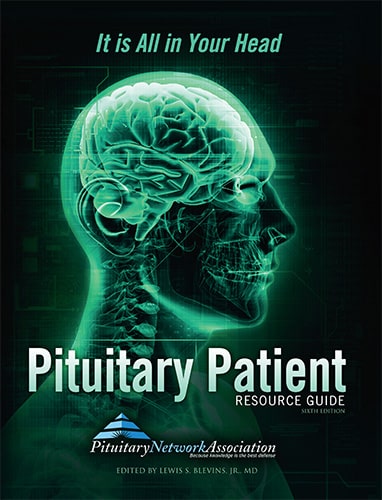
The Pituitary Patient Resource Guide Sixth Edition is now available! Be one of the first to have the most up-to-date information. The Pituitary Patient Resource Guide a one of a kind publication intended as an invaluable source of information not only for patients but also their families, physicians, and all health care providers. It contains information on symptoms, proper testing, how to get a diagnosis, and the treatment options that are available. It also includes Pituitary Network Association's patient resource listings for expert medical care.





